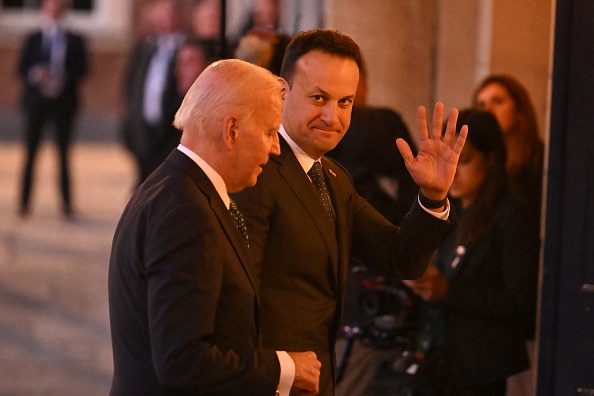European Commission President Ursula von der Leyen may only be weeks into her campaign to be reappointed to the role after June’s European Parliament elections but her campaign is already on rocky ground.
A second Von der Leyen-led EC appears “less likely by the day”, Paris-based European Union law professor Alberto Alemanno said on X on March 25.
Von der Leyen announced her bid for a second term on February 19. While there have been many one-term EC presidents, multiple terms are a rarity.
José Manuel Barroso gained a second term in 2008. Jacques Delors successfully sought second and third mandates in 1988 and 1992.
Von der Leyen’s “election campaign will be much rougher and polarised” than previous races for the post, according to political scientist Nicolai von Ondarza at the German Institute for International and Security Affairs.
He said the current EC chief enjoys only limited support for a second term from her own European People’s Party (EPP), which currently controls 178 of 705 MEP seats.
She received just 80 per cent of votes in a secret ballot at a March 7 party conference in Bucharest to select the EPP candidate, despite being the only person standing, meaning 20 per cent failed to give her their backing.
Delegations from France and Slovenia had made clear they would not support her bid before the meeting but the secret ballot doubled the predicted level of dissent.
“Ursula von der Leyen is a minority within her own party,” wrote French Commissioner Thierry Breton on the day, adding: “The EPP itself does not seem to believe in its candidate.”
Von der Leyen also now has a fraught relationship with EPP chief Manfred Weber, who has joined a legal challenge by the European Parliament against the EC’s decision to unfreeze €10 billion in funding for Hungary.
Support from leaders in the European Council is also uncertain, where voting for the new EC president will take place after the European Parliament elections.
Elements from both the Left and the Right look set to try take her down.
Liberals and Socialists have increasingly questioned Von der Leyen’s leadership.
“We condemn Conservative and Liberal parties that have enabled the far-Right to access power,” stated the manifesto of the Party of European Socialists, which in February nominated 70-year-old Luxembourger Commissioner Nicolas Schmit as its lead candidate. The EPP’s outreach to parties to its Right was an “insult to our values and our European history”, the manifesto continued.
The Greens may also have a vested interest in seeing her fail.
“If she doesn’t manage to get re-elected, the Commissioner [slot from Germany] goes to The Greens” under the German coalition agreement, stated Mac Viskanic, a policy advisor in the European Parliament.
Alongside all that, to win a second term, Von der Leyen faces two other key obstacles.
The first is the rising strength of the Euro-critical Identity and Democracy (ID) and European Conservatives and Reformists (ECR) groups.
The ECR, which “may” work with Von der Leyen, is projected to win 84 seats in the Parliament elections. The ID, which has stated it will not do so, should gain 83, according to March 22 polls. Today, they have 62 and 73, respectively.
The second is Von der Leyen herself.
Not only has she never launched a noticeable Europe-wide campaign but, as EC President she lives, works and sleeps on the 13th floor of the body’s Berlaymont building in Brussels – and has done since 2019. To some that gives the impression of a detachment from reality.
She relies on a small coterie of advisers, such as her long-term Head of Cabinet Bjoern Seibert, engaging with them rather than other Commissioners. Her current communications chief, Jens-Alexander Flosdorff, is tipped to lead her campaign for re-election.
Her world is purely Brussels, not political rallies outside “the bubble”, many feel.
She is a second-generation EU official – her father Ernst Albrecht, in 1958, became one of the first EU civil servants, and she spent her first 13 years in Brussels’ Ixelles neighbourhood, studying at the European School there.
In theory, she is due to attend seven campaign events in different countries, mainly in May, possibly including live debates with the other EU party-group lead candidates. It is not yet clear if she will. Still, if she does, at least language will not be too much of an issue; five of the six are German speakers, as is she.
The current EC President does not seem to be causing much of a storm online, either; Von der Leyen’s X campaign account, @vonderleyen_epp, had just five posts and 2,305 followers on March 26.
While a possible political salvation may come from an alliance with a new European Parliament’s centre-right, any such budding understanding has already come under attack both from the Right and the Left.
From the ID side, French National Rally’s Marine Le Pen has criticised the ECR leader Italian Prime Minister Giorgia Meloni, apparently for seeking to position herself as the acceptable face of the rising centre-right and operating as an interlocutor with von der Leyen.
“Giorgia, you have to tell the truth! Will you support Ursula Von der Leyen or not?,” Le Pen wrote on X March 23.
“I believe you will. Italians have the right to know.
“I believe that the only ones in Italy to oppose this re-election and the ‘eurocracy’ will be Matteo Salvini and Lega Salvini, she added.





